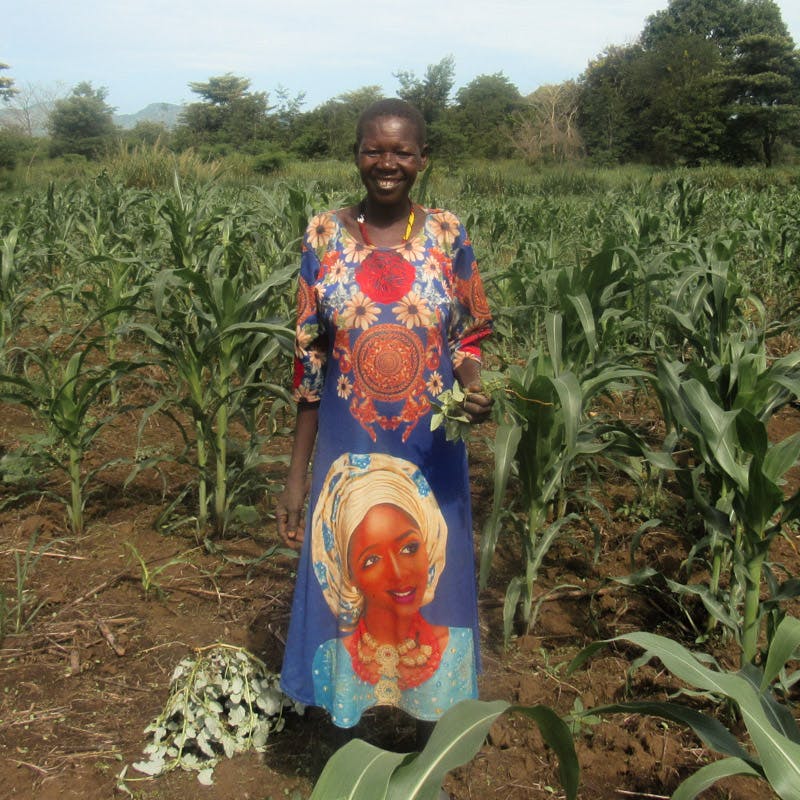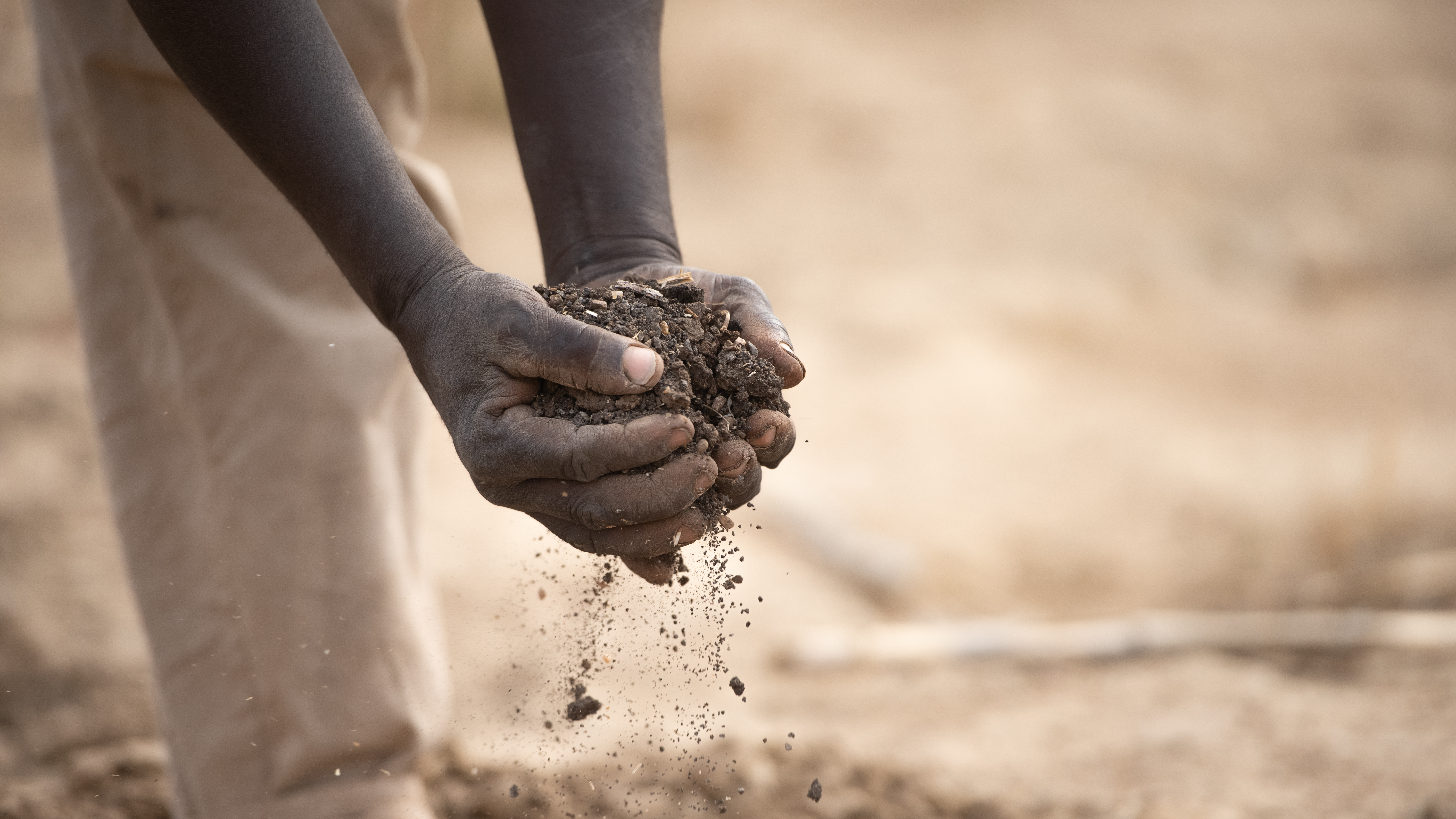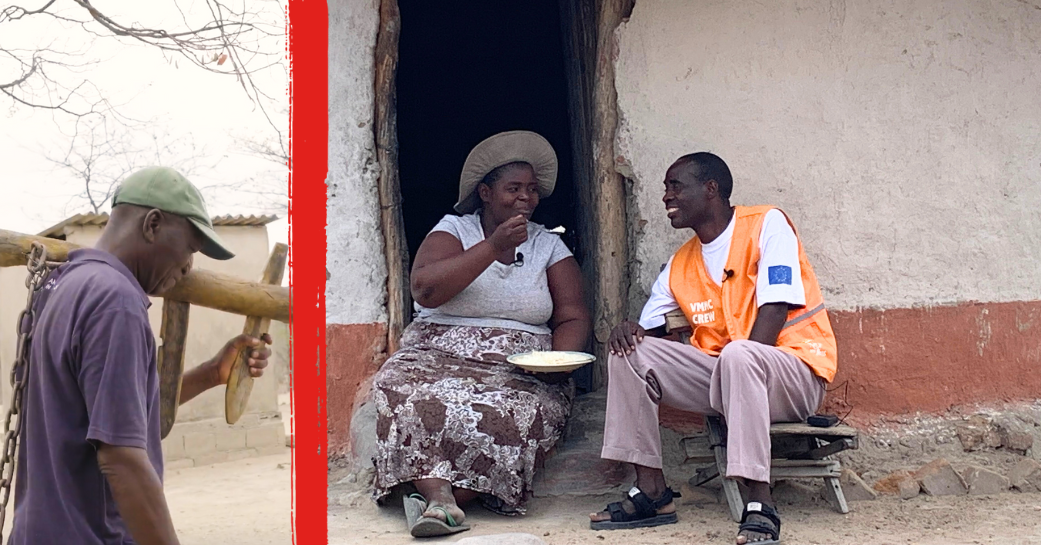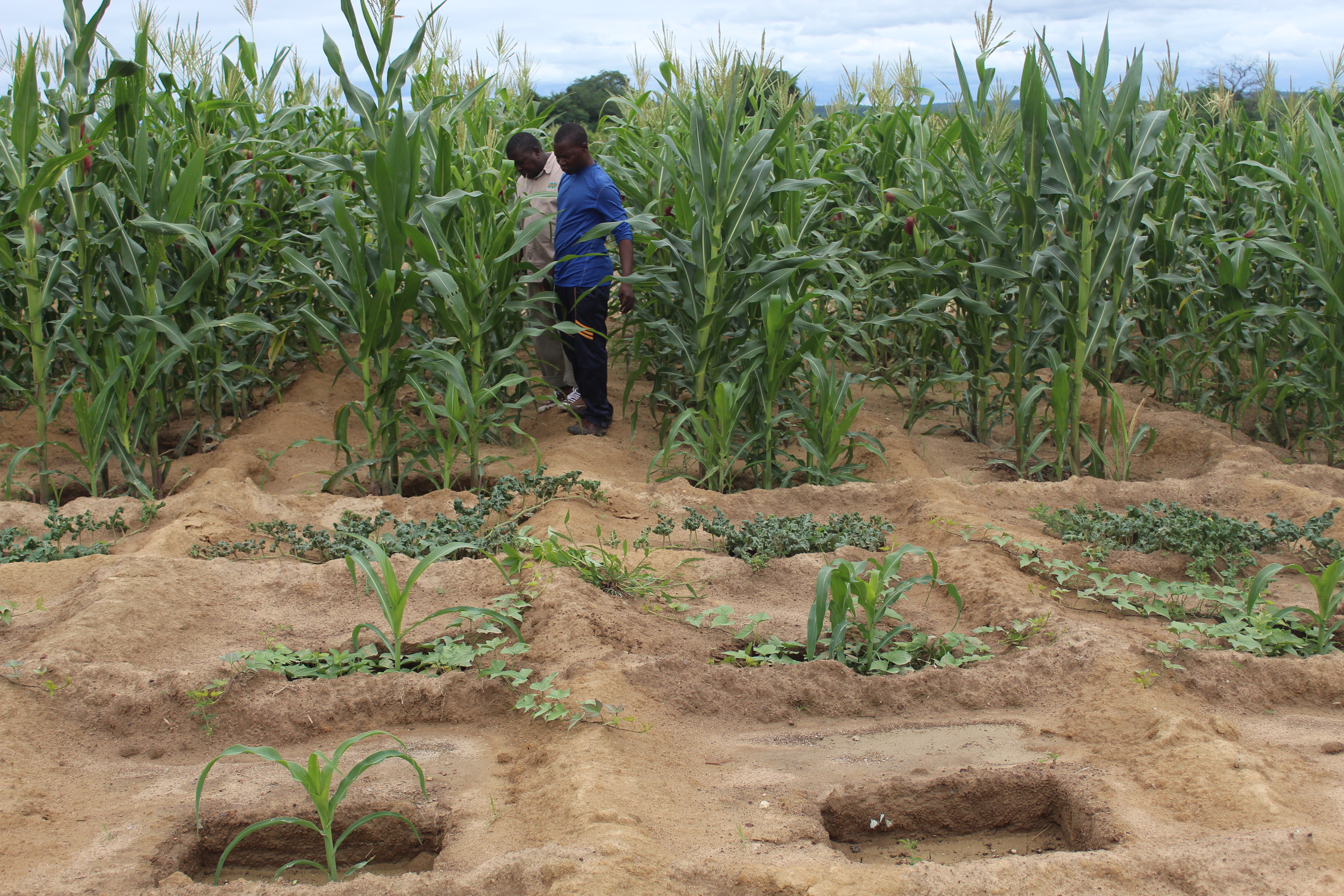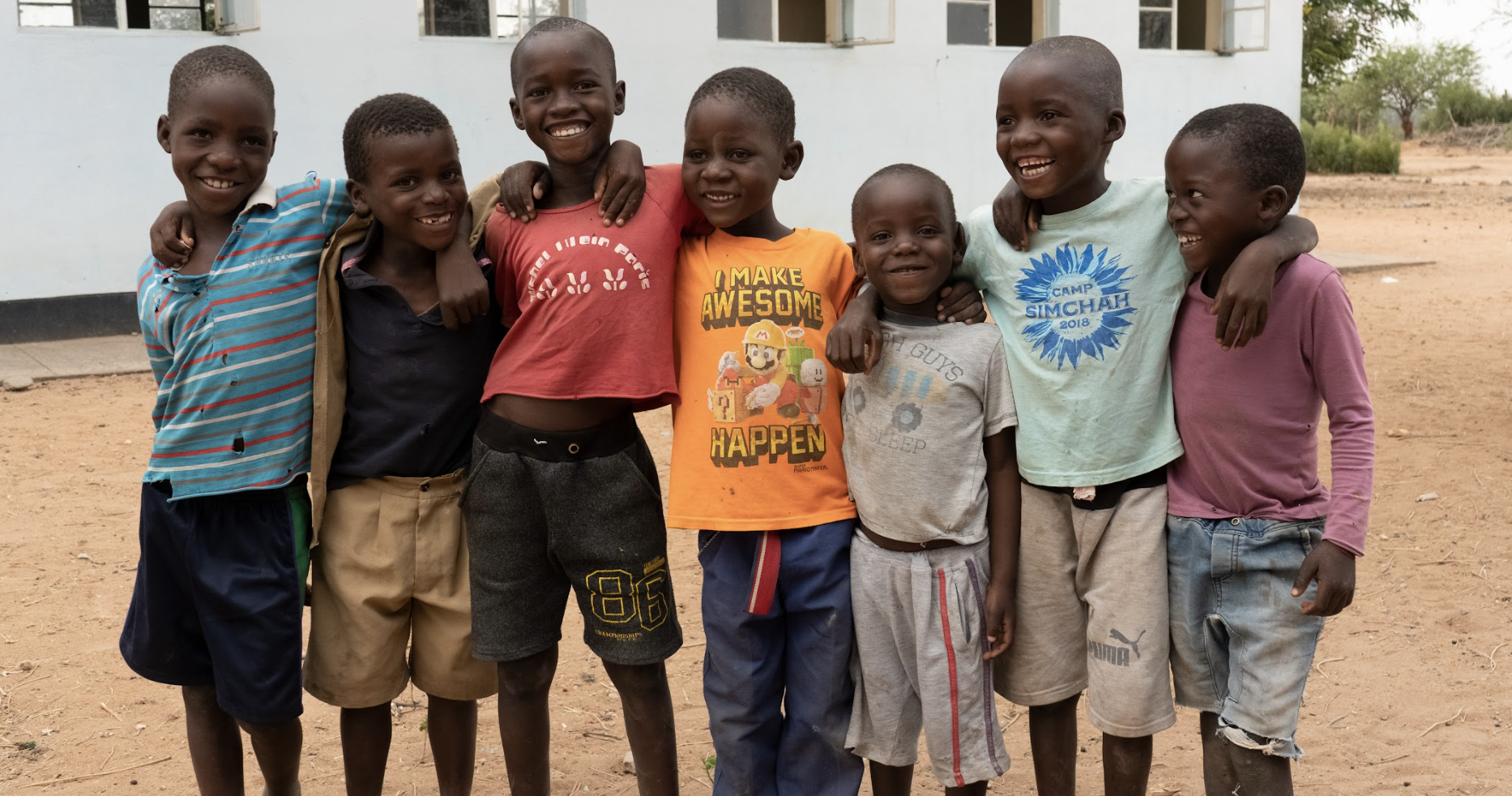- Empowering Communities
Empowering Leaders Through Nutrition-Smart Agriculture Project
Developing sustainable solutions for long-term food security and agricultural production in South Sudan.
Facing food insecurity exacerbated by conflict
Due to ongoing conflict in South Sudan, Hope for South Sudan — a residential school and orphanage — faced challenges in producing enough food to meet the nutritional needs of its 500 students, staff and local community.
Building capacity for crop production
The Empowering Leaders Through Nutrition-Smart Agriculture initiative, implemented in partnership with Lift Up the Vulnerable, provided new crops for the school’s garden, facilitated skills training for staff and local farmers on sustainable agriculture techniques and nutrition, and supported income generation.
Improving nutrition and food security for students and staff
Since the project’s launch, all students regularly receive diverse meals from cultivated crops at Hope for South Sudan, and zero cases of malnutrition have been recorded at the school.
- One of many programs
Supporting Long-Term Food Security Through Sustainable Agriculture
Hope for South Sudan, a residential school near the city of Torit, faced food security challenges caused by the ongoing conflict in South Sudan. Local crop production was insufficient to meet nutritional needs, and the school often had to import food.
To create a long-term solution, Rise Against Hunger, our partner Lift Up the Vulnerable and Hope for South Sudan implement the Empowering Leaders Through Nutrition-Smart Agriculture project. The five-year project supports long-term food security by increasing crop production at Hope for South Sudan and for local farmers, improving the nutritional status of 500 students and staff, and bolstering the community’s financial sustainability. Through skills training, animal husbandry and a focus on the cultivation of diverse crops for consumption and income generation, the initiative has already seen outstanding results:
- All students regularly receive diverse meals from crops grown at the school.
- There are zero cases of malnutrition on campus.
- Hope for South Sudan’s cultivated land has increased from 40 to 127 acres.
- 200 community members have engaged in the agriculture activities.
As the project continues, Hope for South Sudan and the surrounding community continue building capacity in crop production for consumption and income generation, supporting their self-reliance and bright futures.
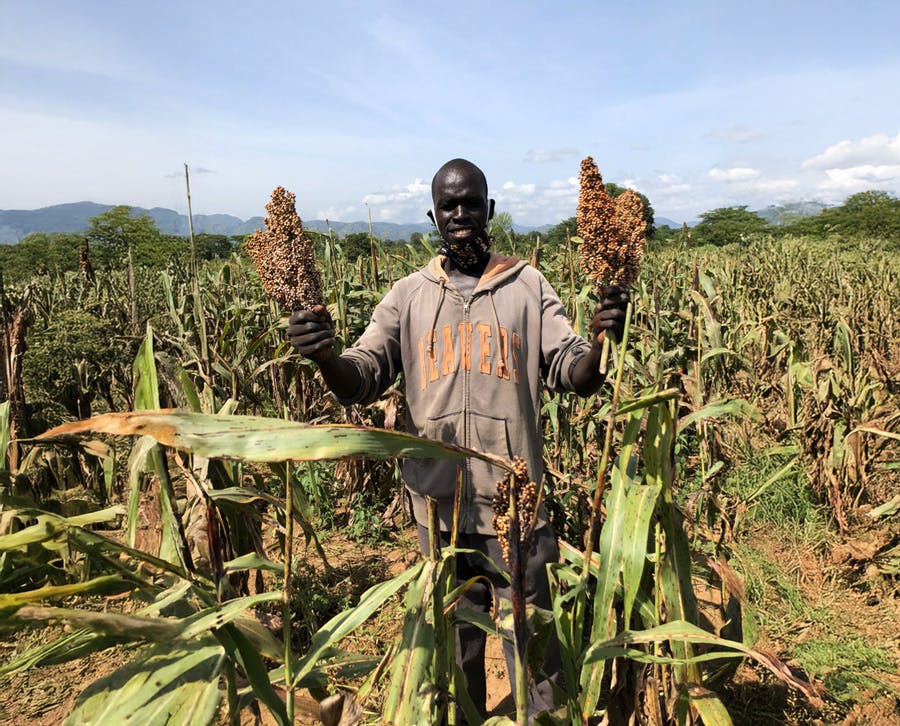
- It Starts With a Meal ®
Build Resilience for Global Communities
Your generous gift will continue supporting our work to end food insecurity and empower communities around the world. We hope you’ll join us!
Hear from Program Participants
In partnership with Lift Up the Vulnerable and Hope for South Sudan, students, school staff and farmers have access to locally grown, nutritious meals and agricultural opportunities. Read what a few participants had to say:
Joyce, Farmer
“I have improved my agricultural knowledge and skills, where I am able to diversify my farm and prepare a nutritious diet for my family… I am strong and energetic because I eat nutritious food. My family is free of any malnutrition since I have diverse food for my family.”

Elizabeth, Student at Hope for South Sudan
“All my fellow children at Hope for South Sudan are healthier and happier that we all receive good meals. The project ensured we have different and nutritious food throughout the year… Due to an improved diet, I have become very healthy and made me discover my talents in sports.”

Susana, Farmer
“I have more food for the family… The impact on the community has been through behavioral change, where more people are practicing the improved farming practices and experiencing monetary gain.”
